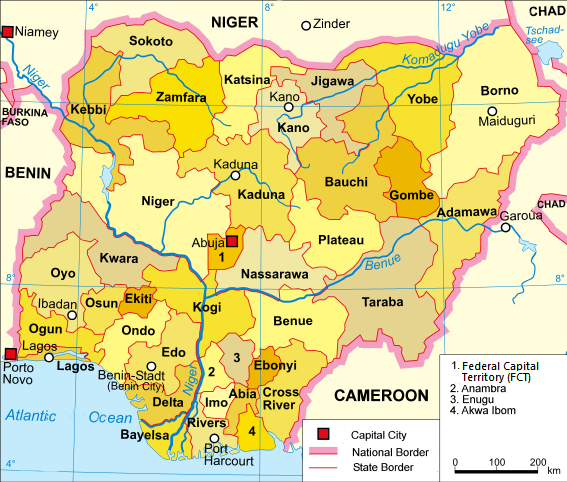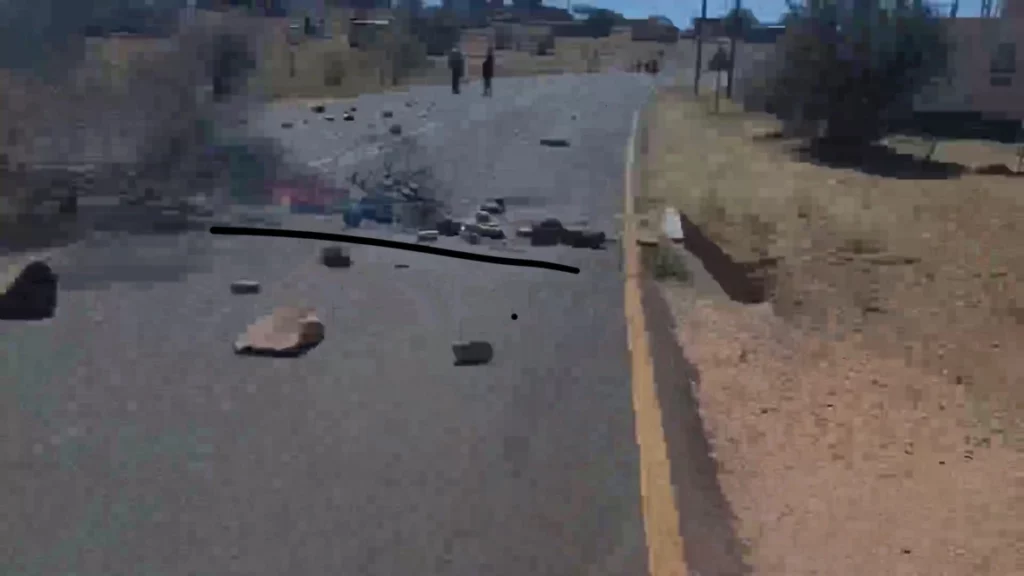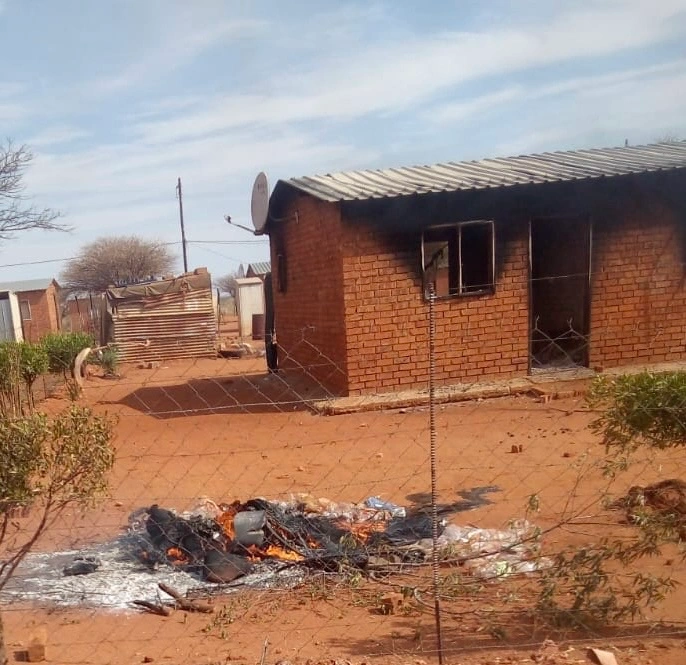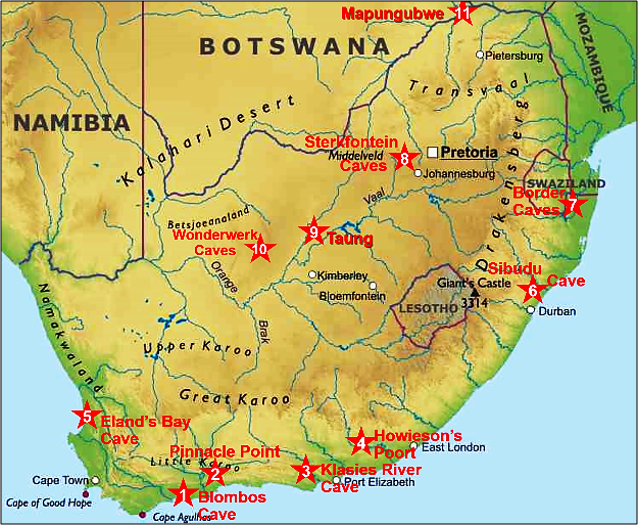As elaborated further in the article presented below, the human rights situation in Liberia, as reported by the Independent National Commission on Human Rights (INCHR) in its 2024 Human Rights Situation Report, is very worrisome with severe human rights violations across the country. Notably, I quote, “The report (…) condemned the continuation of harmful traditional practices, particularly female genital mutilation (FGM), trial by ordeal, and ritual killings. Despite calls from both the government and traditional leaders to end these practices, they remain rampant (….)” Unquote.
Ritual killings, trial by ordeal (‘sassy wood trial’) and witchcraft accusations are persistent problems in Liberia and on many occasions I have drawn attention to these practices, reporting on particular ritual murder cases. In the recent past there have only been a few reported cases of ritual violence including murder but, as the 2024 Human Rights Situation Report of the INCHR demonstrates, this does not mean that the ugly practice of killing human beings for ‘juju’ purposes, traditional trials by ordeal and witchcraft accusations have vanished – unfortunately not.
It is interesting to note that the INCHR categorizes ritual killings as a traditional practice. It is a fact, that the origin of killing for ritual purposes (to obtain ‘juju’) in Liberia goes back to the history of certain tribal communities, but Liberia’s recent past contains an abundance of ritual murders which were committed because of sheer greed and which are hardly distinguishable from ordinary criminal acts including abduction, torture and murder.
Providing an exhaustive list of examples here would require too much space, I will just give three examples covering the past 50 years: (1) the Maryland murders in the late 1970s; (2) ritual killings in the Doe era (1990s) ; and (3) accusations linking the Weah Administration (2018 – 2024) to ritual killings – underligning that ritualistic murders are being committed in Liberia every year.
(Note: I purposely omit here the back-to-back civil wars (1989-2003) with its many atrocities, ritualistic killings and cannibalism.).
The one million dollar question that emerges is of course: ‘Why are there still ritual murderers in Liberia, why hasn’t the phenomenon of ritual killings disappeared?
He/she who knowns the answer should speak.
(webmaster FVDK)
Liberia: INCHR 2024 Report Highlights Alarming Human Rights Violations in Liberia

Published: March 28, 2025
By: Front Page Africa, Liberia
Monrovia-The 2024 Human Rights Situation Report released by the Independent National Commission on Human Rights (INCHR) has shed light on severe human rights violations across Liberia, pointing to troubling trends that persist despite some positive efforts in certain sectors.
The report, presented by INCHR Chairperson Cllr. Dempster Brown, paints a concerning picture of the state of human rights in Liberia, with key violations spanning state security brutality, prolonged pretrial detention, gender-based violence, and the continued prevalence of harmful traditional practices.
State Security Brutality and Excessive Use of Force
The most pressing concern raised in the report is the brutality of state security forces. Instances of excessive use of force by law enforcement, often leading to deaths, have continued to occur with alarming frequency.
One such incident highlighted in the report was the killing of a 17-year-old student by a police officer on July 1, in Paynesville City.
The officer was involved in a confrontation with a suspect, and in an attempt to restrain the individual, he discharged his weapon, fatally injuring the student. Despite the officer being arrested and charged with murder, this case underscores a broader issue of unchecked violence by state security forces.
Prolonged Pretrial Detention and Judicial Delays
Another critical violation addressed in the report is the widespread issue of prolonged pretrial detention. Many individuals are held in detention for extended periods without trial, contributing to overcrowding in Liberia’s prisons.
These delays are further compounded by a shortage of judicial officers in rural areas, preventing timely adjudication of cases.
Prolonged Pretrial Detention and Judicial Delays
Another critical violation addressed in the report is the widespread issue of prolonged pretrial detention. Many individuals are held in detention for extended periods without trial, contributing to overcrowding in Liberia’s prisons.
These delays are further compounded by a shortage of judicial officers in rural areas, preventing timely adjudication of cases.
This backlog in the judicial system according to the report, has led to a growing distrust in the country’s ability to deliver justice.
Gender-Based Violence and Rape
The INCHR report also expressed grave concern over the persistence of gender-based violence (GBV), with rape cases, particularly those involving minors, remaining a constant threat.
Despite ongoing efforts to address this issue, there has been no significant reduction in the prevalence of sexual violence, with victims often left without adequate protection or recourse to justice.
Harmful Traditional Practices
The report further condemned the continuation of harmful traditional practices, particularly female genital mutilation (FGM), trial by ordeal, and ritual killings. (italics added by the webmaster)
Despite calls from both the government and traditional leaders to end these practices, they remain rampant, with young girls being particularly vulnerable. The practice of FGM, in particular, continues to impact young children who are often subjected to the procedure at the expense of their education and well-being.
Enforced Disappearances and Extrajudicial Killings
The issue of enforced disappearances was also highlighted, with the case of Abrahima Kalil Cherif standing out.
Cherif, who was arrested in 2024, was reported missing after being detained at the Monrovia Central Prison. His case, along with other instances of enforced disappearances and extrajudicial killings, points to serious lapses in Liberia’s adherence to both national and international human rights standards.
The appalling conditions in Liberia’s prisons were another critical area of concern. Overcrowding, lack of medical care, and the rampant spread of diseases like tuberculosis and hepatitis B have created a dire situation for inmates.
The report stressed that the prolonged pretrial detention system exacerbates these conditions, placing detainees at severe risk of health complications.
Child Protection and Violations in Concession Areas
Additionally, the report said children in Liberia remain vulnerable to exploitation, with widespread reports of child labor, sexual violence, and even torture.
“Children accused of witchcraft are often subjected to public humiliation and violence, highlighting the need for stronger child protection measures. Additionally, the report pointed to violence in concession areas, where communities protesting against poor conditions have been met with deadly force from state security, leading to significant human rights abuses,” the report added.
Call for Immediate Action
In light of these grave violations, the INCHR has called for government immediate action to address the issues raised in the report.
The Commission has further recommended Investigations into all killings by state and non-state actors, with appropriate accountability, Expedited reforms to address the backlog in the judicial system and alleviate overcrowding in prisons, the criminalization of harmful traditional practices such as FGM and trial by ordeal, strengthened protections for women and children, particularly in the areas of gender-based violence and child labor and Enhanced oversight of law enforcement agencies to ensure accountability for misconduct.
Meanwhile, the 2024 INCHR report underscores the urgent need for reforms in Liberia’s approach to human rights, noting that continued violations, particularly those involving state security forces, judicial delays, gender-based violence, and harmful traditional practices, demand immediate attention from the government.
The INCHR said that without significant changes, Liberia risks undermining its commitment to human rights, both domestically and on the international stage.
Source: Liberia: INCHR 2024 Report Highlights Alarming Human Rights Violations in Liberia





































































































